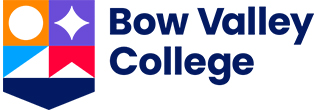Calculating the value of unquantifiable change, identifying the ingredients of intangible success — it is no easy task to plan and evaluate social innovation. Yet, in the face of competing needs and limited resources, it must be done.
“The more you understand why something was or was not successful the more you can generalize later and come up with best practices that will help future projects have success,” said Russ Wilde, of Bow Valley College in Calgary.
Wilde is directing a project to develop evidence-based criteria for evaluating social innovation and to identify factors that promote or inhibit its success. The project is one of the Social Sciences and Humanities Research Council’s Community and College Social Innovation Fund grants. Its goal is to create tools to guide stakeholders through choosing and planning social innovation projects, and evaluating how well they worked.
Wilde and colleagues from Bow Valley College are working in partnership with the Town of High River, the United Way of Calgary and Area and Mount Royal University. The multi-stage, multi-year project will start with a questionnaire asking organizations involved in social innovation what they think its characteristics are and what barriers and facilitators affect social-innovation projects.
The questionnaire is being distributed as widely as possible — with the United Way as a partner, the project has deep reach into social innovation of all kinds — and will continue to be circulated until no new concepts are being brought up in answers. But what those concepts add up to is critical for the project, because such a broad range of activities are labelled social innovation. Defining it is difficult and doing research on it at a broad level is extremely challenging.
“One of the results of this research will be whether you can come up with a generalized set of criteria that is applicable to a broad range of social innovation projects,” said Scott Henwood, lead researcher for the project.
Based on the questionnaire, discussions with stakeholders and a literature review, the researchers will try to determine what qualifies something as a social innovation, what factors must combine to make it a success and what things are barriers or impediments to social innovation.
The next step is to create and test tools for planning and evaluating social innovations, including one with the Town of High River, a partner in the project. After the flood that devastated the town in 2013, there was a rush of new projects in the community of 13,000 south of Calgary. That will let the researchers and steering committee choose a real-life example of a social innovation they think will be the best test for their criteria and ability to evaluate.
Social innovation is a difficult area in which to judge success, because changes that make a profound difference in the lives of people may not be easily quantifiable. The Bow Valley team believe the outcome of their project — an online toolkit for planning and evaluating social innovation — will help people with that challenging task.


